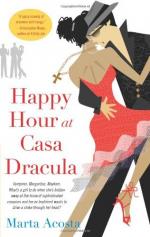|
This section contains 218 words (approx. 1 page at 300 words per page) |
Happy hour is the two-hour period before dinner when bars offer discounted alcoholic beverages. In the 1920s, "happy hour" was Navy slang for the scheduled period of entertainment on-ship. After the passage of the Volstead Act, civilians held "cocktail hours" at speakeasies, and in their own homes, to fortify themselves before dinner. Post-prohibition cocktail lounges continued the custom of pre-dinner cocktails. "Happy hour" became a common term around 1960; it appeared in a 1959 Saturday Evening Post article on military life. Owing its name to the word "happy" as meaning "slightly drunk," happy hour became known more as an after-work ritual, instead of a prelude to the evening. In the 1980s, bars offered complimentary hors d'oeuvres for happy hour, in response to the heightened enforcement of anti-drunk-driving laws. The military reflected these changes too, when in 1984, General John A. Wickham, Jr. abolished happy hours at United States military base clubs.
Further Reading:
Abel, Ernest L. Alcohol Wordlore and Folklore. Buffalo, Prometheus Books, 1987.
Cassidy, Frederick, editor. "Happy." Dictionary of American Regional English. Cambridge, Harvard University Press, 1985.
"Happy Hour." Random House Historical Dictionary of American Slang. New York, Random House, 1994.
Kirby, David. "Not-So-Happy-Hour: Industry Hit Hard by Drunk Driving Proposals." Restaurant Business. April 1, 1998, 16.
Mariani, John. "Happy Hour." The Dictionary of American Food and Drink. New York, Hearst Books, 1994.
|
This section contains 218 words (approx. 1 page at 300 words per page) |


